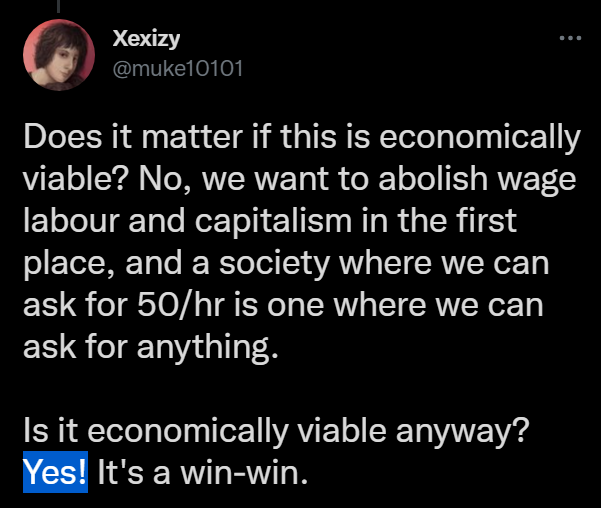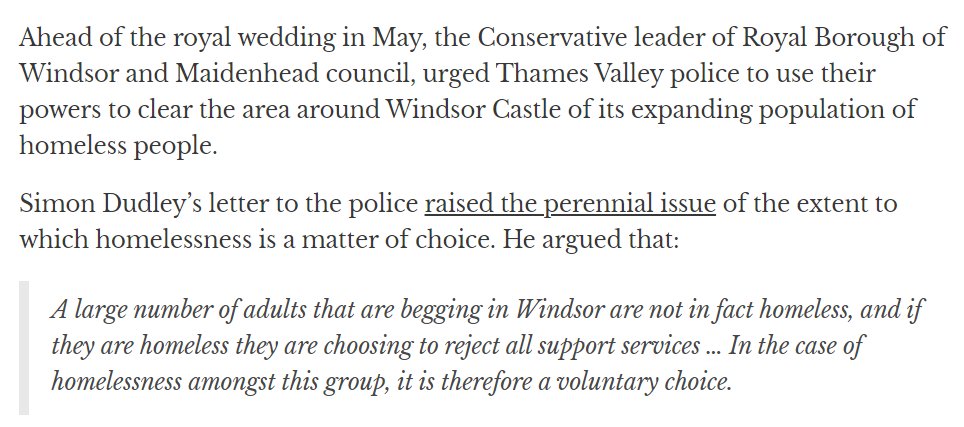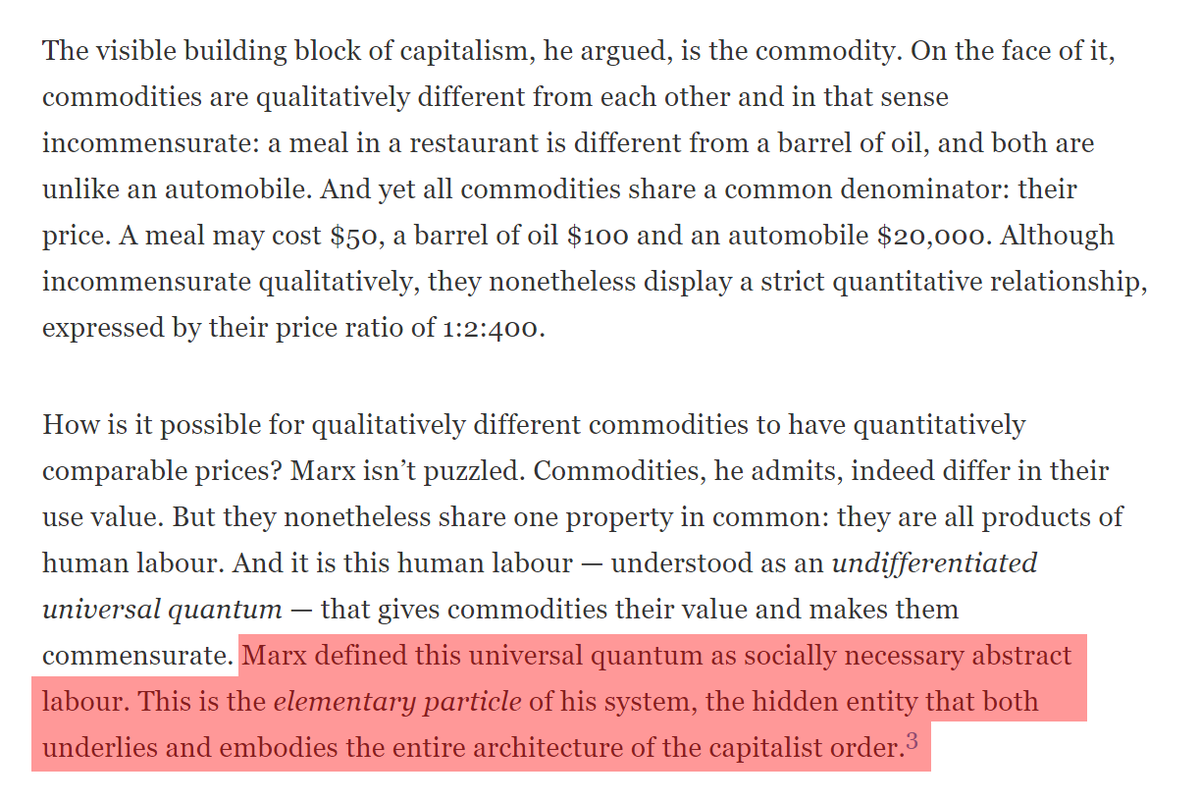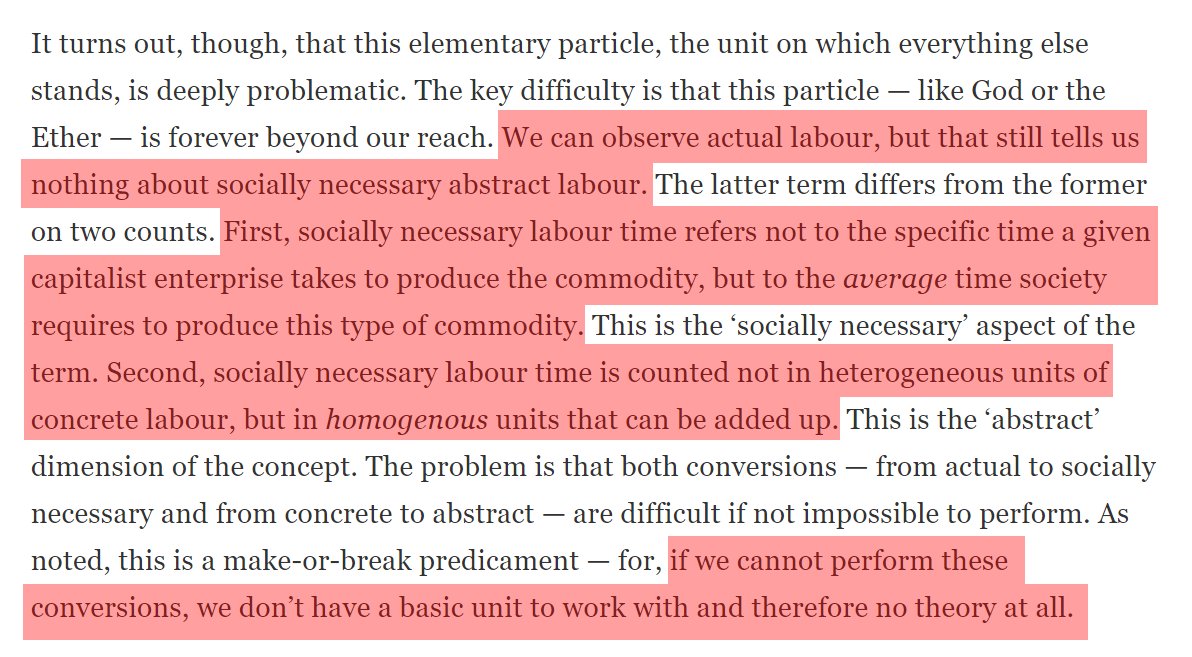
guy who hates carbon taxes (because they raise prices and hurt the poor) but loves banning fossil fuel production
There's no solution to climate change without shifting consumption from fossil fuels.
The first step is simple: A strong and rising carbon tax and dividend, which shifts income from rich to poor, and a massive green public investment in energy, manufacturing, & construction
The first step is simple: A strong and rising carbon tax and dividend, which shifts income from rich to poor, and a massive green public investment in energy, manufacturing, & construction

We *need* to consume fewer fossil fuels. That does *not* demand climate austerity or degrowth.
The investment required to restructure our economy toward zero-carbon is massive and can deliver even GREATER economic prosperity -- embrace green growth! postkeynesian.net/working-papers…
The investment required to restructure our economy toward zero-carbon is massive and can deliver even GREATER economic prosperity -- embrace green growth! postkeynesian.net/working-papers…

Neither carbon taxes or green investment alone can keep global warming below 2.5dC (left)
We must pursue (right) a mixture of fossil fuel consumption reductions (which reduce econ growth) and green public investments (which increase econ growth)
DEFINE model:

We must pursue (right) a mixture of fossil fuel consumption reductions (which reduce econ growth) and green public investments (which increase econ growth)
DEFINE model:
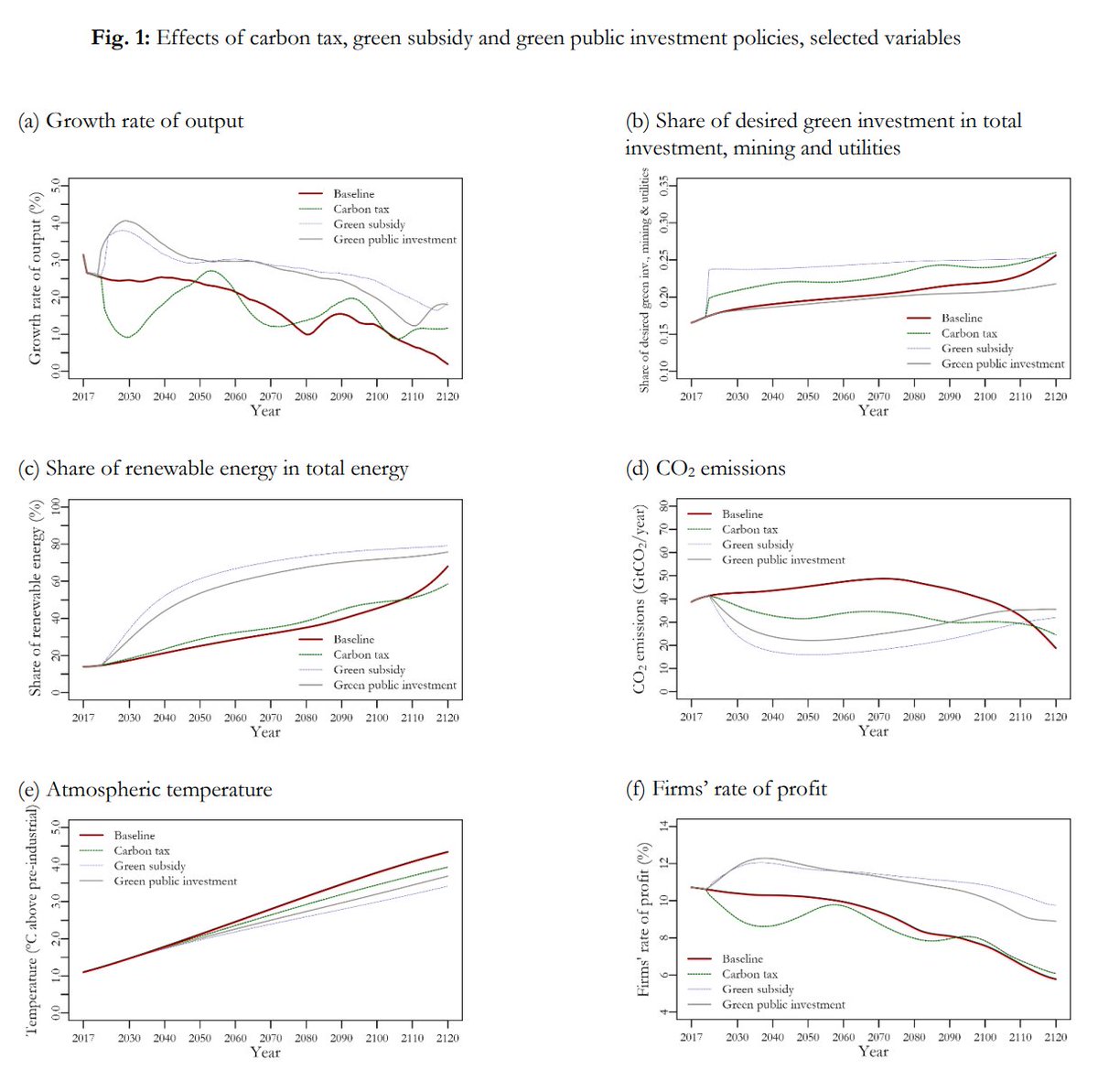
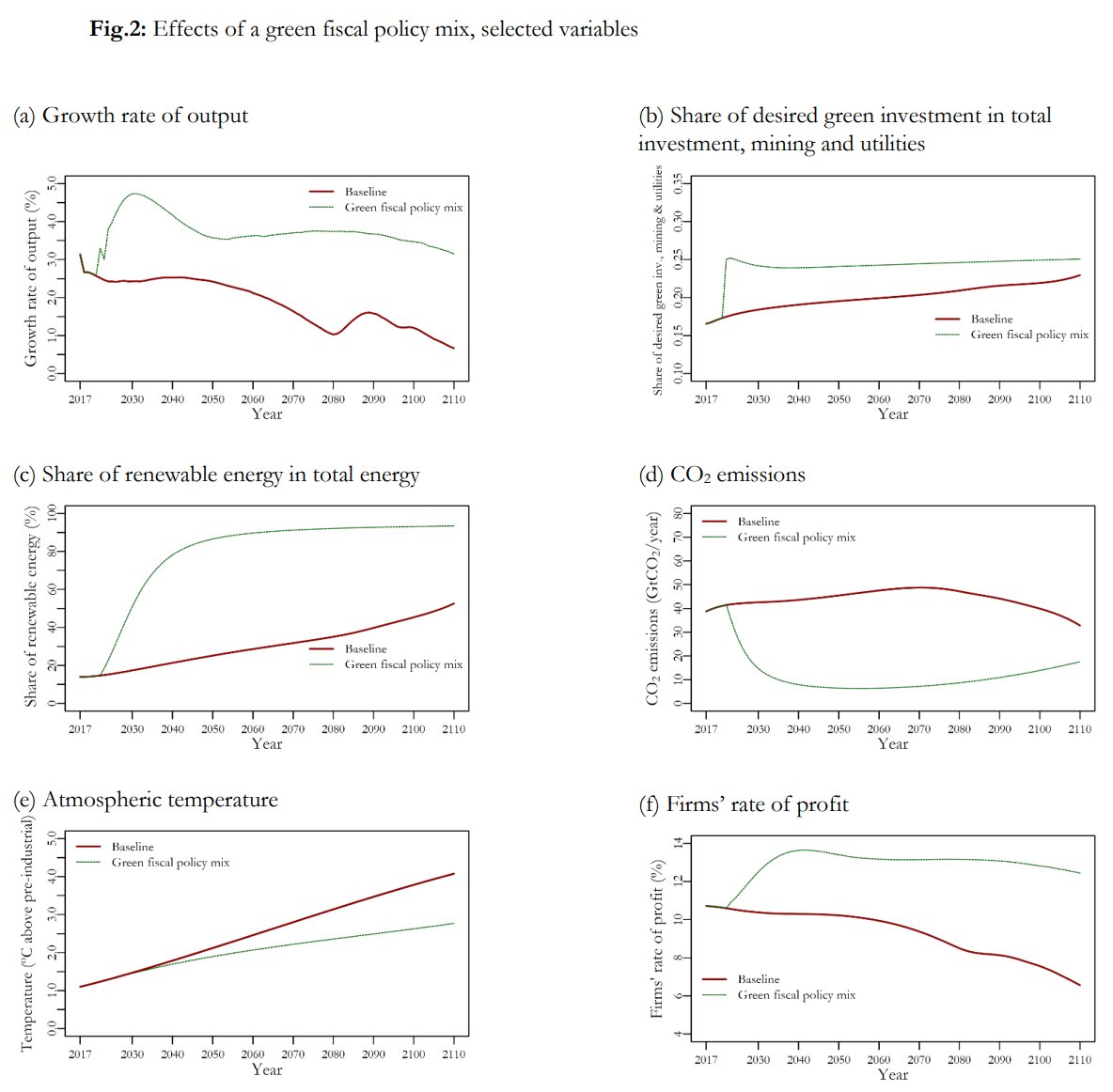
TLDR:
- We need to reduce fossil fuel consumption. A carbon tax achieves that.
- A carbon tax also hurts the poor and reduces economic growth.
- A carbon dividend helps the poor and boosts growth -- as do green public investment programs.
No contradiction -- we need all of them!
- We need to reduce fossil fuel consumption. A carbon tax achieves that.
- A carbon tax also hurts the poor and reduces economic growth.
- A carbon dividend helps the poor and boosts growth -- as do green public investment programs.
No contradiction -- we need all of them!
• • •
Missing some Tweet in this thread? You can try to
force a refresh







